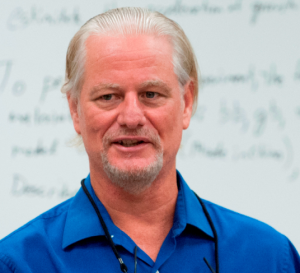
Leo Ondrovic, PhD
Associate professor of biology and physics
Faculty expert on global climate change
I am personally very pleased to see that Pope Francis has taken the lead in calling everyone to act to combat threats to our natural environment in the encyclical. In it, Pope Francis focuses on “global environmental deterioration,” widely ranging from global warming, pollution, loss of access to clean water, losses of biodiversity, destruction of forests and woodlands, urban sprawl, and threats to our oceans. The encyclical does discuss many scientific findings and theories, but it is really more of a religious and philosophical argument. Pope Francis calls on “all of humanity,” and asks that we become “painfully aware” of the problem and dare to consider solutions. This is the right thing to do because “God has entrusted the world to us” and because “deterioration of the environment debases human life.” We are part of nature, and humans and nature coexist. The pope goes on to say that to commit a crime against nature is a sin against God and ourselves. He urges us to move gradually from what we want to what God’s world needs, and observes that “the natural environment and the human environment deteriorate together.”
The pope calls for fossil fuels to be replaced and for the development of renewable energies. He asks that we develop transportation and production methods that use less energy. He suggests that energy efficiencies should be increased, and discusses “obstructionist attitudes,” which include denials, nonchalant resignation, blind faith in technical solutions, and a more general lack of interest by the public to do what is needed. And he correctly observes that the rapid pace of human developments outstrips the slow pace of nature. As I have described to my students many times, the greater problem is not climate change; rather, it is rapid climate change. Nature can adapt, but cannot adapt quickly, and this is often what leads to destruction of biodiversity and the extinction of species. Pope Francis observes that the loss of biodiversity follows destruction of forests and woodlands, which robs us all of resources. But this should not be considered a mere resource, the pontiff continues, as we have “no right” to destroy God’s creations. And as scientists know, every creature has an environmental niche, an essential role in the ecosystem that deteriorates with the loss of each species. Pope Francis sums up the moral imperative nicely when he observes that “the climate is for the common good, belongs to all, and is meant for all.”
But this encyclical is not just an environmental criticism. The pope is examining the contributions of a more general breakdown of our society. He bemoans the loss of “real relationships” to “internet communications which allow us to choose or eliminate relationships at whim.” He identifies urban sprawl as a threat, as well as pollution of all types. With great insight, the Holy Father comments on the danger of “great sages” being drowned out by the information overload of modern society, which in my opinion, makes it all the more important that he lend his voice to this environmental cause. He identifies political and societal problems such as access to clean water, calling it “a basic and universal human right.” He says a major portion of the environmental problem is caused by our throwaway society, which discards resources with little recycling in an unsustainable model, and calls on us to mimic nature, where all matter is recycled.
And just to be clear, this is not new ground for the Roman Catholic Church. Previous encyclical letters are cited from almost every pope who has served in my lifetime: Popes John XXIII, Paul VI, John Paul II, and Benedict XVI. This new encyclical is lengthy, and an 82-page manuscript cannot be summarized in just a few words, so I urge everyone to read this timely and wise statement for themselves. I applaud the Holy Father for taking on the environment from a moral perspective, and am impressed with his knowledge and insight. I appreciate his guidance and advice to all.
(Editor’s note: Dr. Ondrovic helped craft the SLU Polling Institute’s spring survey of Americans and Floridians on their attitudes toward global climate change, and he provided comments on the survey results. The pertinent news stories and poll reports are all available on this site under the dates April 2, 2015, and April 6, 2015.)
By: Leo Ondrovic
Media Contacts: Kim Payne, staff writer and media coordinator, at kim.payne@saintleo.edu or (352) 588-7233/(717) 798-1508 or Jo-Ann Johnston, academic communications manager, at jo-ann.johnston@saintleo.edu or (352) 588-8237/(352) 467-0843.
